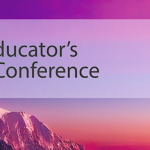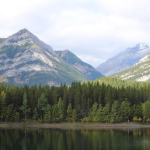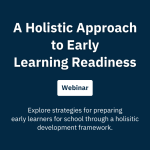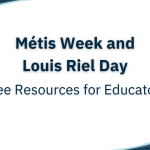Professional Development in Indigenous Education for Teachers
Teachers have a crucial role in influencing the lives and futures of their students. In Canada, there’s a growing emphasis on Indigenous education, making it a popular subject for professional development (PD).
In this post, we’ll explore various PD opportunities related to Indigenous education in Canada. These programs, workshops, and resources can help teachers understand Indigenous history, culture, and perspectives and offer tools to create an inclusive and respectful classroom environment.
Why Is PD About Indigenous Education Important?
Before diving into PD opportunities, it’s important to understand why Indigenous education is essential for both Indigenous and non-Indigenous students.
Canada is home to many Indigenous Peoples, including First Nations, Métis, and Inuit communities, each with their own languages, cultures, and traditions that have been passed down for many generations. For many years, Indigenous knowledge and perspectives were excluded from the Canadian education system. Moreover, institutions like residential schools discouraged Indigenous students from speaking their languages or practicing their culture.
PD can help educators become more confident and competent in teaching about the diversity of Indigenous Peoples and incorporating Indigenous perspectives and voices into their teaching. It also helps teachers understand how to talk to students honestly and truthfully about settler colonization in Canada. Learning about Indigenous perspectives gives students a more well-rounded understanding of historical and contemporary issues affecting Indigenous Peoples. Indigenous students benefit from seeing their culture and history reflected in the classroom, which can help foster a sense of pride and belonging. Non-Indigenous students, on the other hand, can gain valuable insights into the rich traditions and knowledge systems of Indigenous Peoples.
There is a growing recognition of the importance of reconciliation and learning from Indigenous Peoples. The Truth and Reconciliation Commission of Canada (TRC) made 94 Calls to Action, several of which focused on education. One main goal is to ensure that all students learn about Indigenous history, including the impact of residential schools, treaties, and the ongoing contributions of Indigenous Peoples to Canadian society. By integrating Indigenous education into the curriculum, teachers can contribute to the ongoing process of reconciliation, helping to build a future where Indigenous and non-Indigenous Peoples can live and learn together with respect and understanding.
PD Opportunities in Indigenous Education for Teachers
There are many PD opportunities for teachers who want to learn more about Indigenous education:
1. University Courses and Certificate Programs
Several Canadian universities offer courses and certificate programs focused on Indigenous education. These programs are designed for teachers and educators who want to deepen their understanding of Indigenous perspectives and ways of learning.
The University of British Columbia (UBC) offers various programs related to Indigenous Education. One example is a free online course called Reconciliation Through Indigenous Education, which focuses on Indigenous knowledge systems, decolonization, and the role of education in reconciliation. Teachers who complete the program will have a stronger foundation for integrating Indigenous content into their teaching practices.
Wilfrid Laurier University has a Decolonizing Education Certificate that focuses on understanding Indigenous perspectives on decolonizing education and on your own position in solidarity with Indigenous Peoples.
2. Online Learning and Resources
Online courses and resources provide a flexible option for teachers who prefer to learn at their own pace.
The University of Alberta offers a free online course called Indigenous Canada. This course covers important topics like the history of Indigenous Peoples in Canada, their relationship with the land, and the impact of colonialism. It’s a great starting point for teachers who want to deepen their understanding of Indigenous perspectives.
Additionally, the Canadian Teachers’ Federation (CTF) has created a website called Imagineaction, which offers resources and lesson plans focused on Indigenous education. After creating an account, teachers can find activities, videos, and readings to help them introduce Indigenous knowledge and culture into their classrooms.
3. Indigenous Knowledge Keepers and Elders
One of the best ways for teachers to learn about Indigenous education is by connecting with Indigenous Knowledge Keepers and Elders. These community members hold valuable knowledge about Indigenous traditions, teachings, and worldviews. Many Indigenous communities are willing to partner with schools to offer guidance and support. Some school boards may also have access to Indigenous education consultants who can help facilitate these connections and provide additional resources. If you want to learn more about connecting with Indigenous communities, check out this blog post.
4. Conferences
Conferences are great ways for teachers to engage with Indigenous education on a shorter-term basis. These events often bring together educators, Indigenous leaders, and Knowledge Keepers to discuss best practices for teaching Indigenous topics in the classroom.
The First Nations, Métis, and Inuit Education Association of Ontario (FNMIEAO) hosts annual conferences where teachers can learn directly from Indigenous educators and Elders. These conferences focus on land-based learning, Indigenous language revitalization, and integrating Indigenous perspectives across subjects like math, science, and social studies.
Indspire’s National Gathering is an annual conference for K–12 teachers. It offers workshops on student engagement strategies, classroom best practices, and trends affecting Indigenous students, among many other topics! It’s a wonderful chance to connect, learn, and grow alongside other educators.
The First Nations Education Conference is an annual conference hosted by the First Nations Education Steering Committee (FNESC) featuring different themes related to Indigenous education. This workshop-based event offers an opportunity for educators to connect, share, and learn more about advancing Indigenous education.
5. Workshops
Workshops are another way teachers can increase their familiarity and confidence with Indigenous education. Many school districts offer workshops that cover topics such as treaty education, teaching about residential schools, or understanding the importance of land and nature in Indigenous cultures. Check with your local school boards or professional organizations for upcoming events.
Learning Bird also offers several different professional development sessions on a variety of topics, including Outdoor Education, Incorporating Indigenous Pedagogies, and Indigenous Approaches to Assessment. If you’re interested in exploring our PD opportunities, visit this page to download our workshop brochure.
Conclusion
Indigenous education is an essential part of today’s classroom, and PD opportunities provide teachers with the tools to succeed. Whether it’s through university programs, workshops, online courses, or partnerships with Indigenous communities, there are many ways for educators to deepen their understanding of Indigenous knowledge and perspectives.



